Choosing the right vegan sunscreen can be tricky with so many options on the market. Vegan sunscreens offer effective sun protection without any animal-derived ingredients or testing, making them a compassionate choice for conscious consumers.
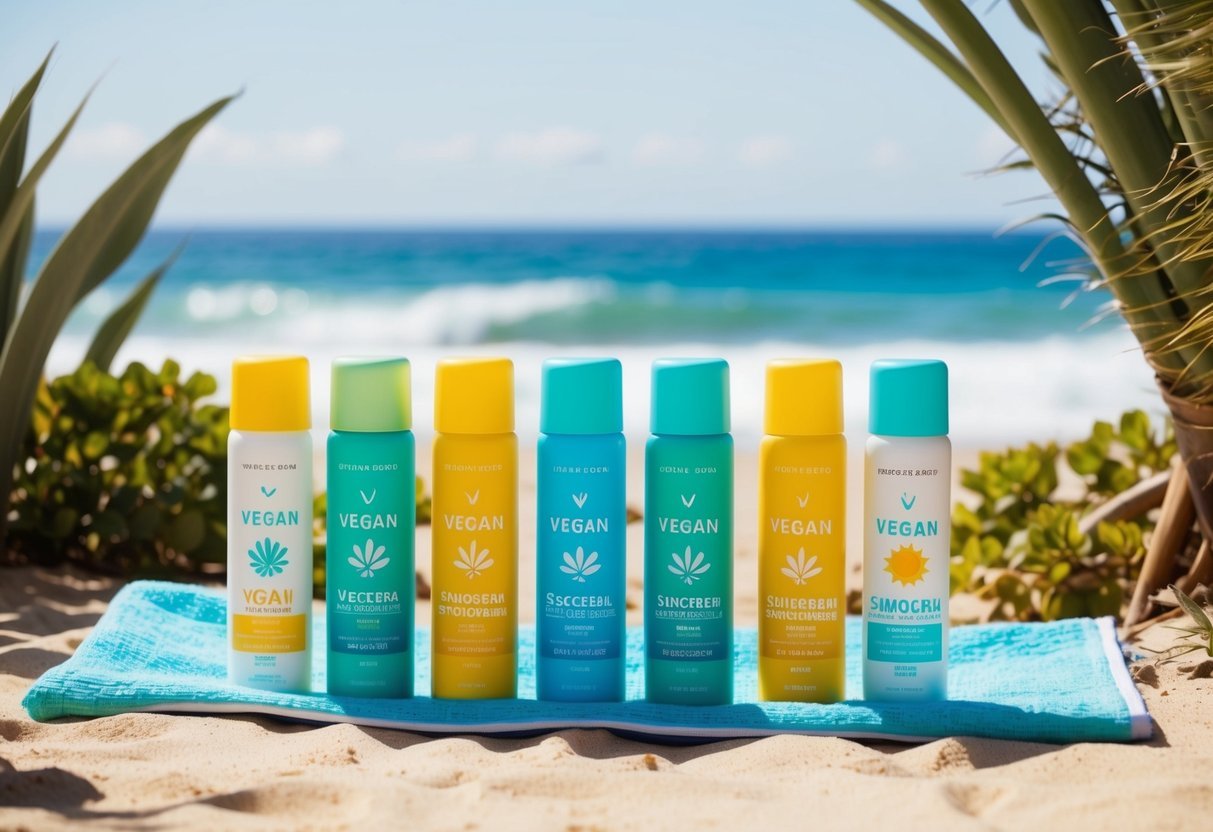
When shopping for a vegan sunscreen, there are several key factors to consider. From the active ingredients to the packaging, each element plays a role in determining the product’s effectiveness and environmental impact.
In this article, we’ll explore seven essential things to look for when selecting a vegan sunscreen that aligns with both your skin’s needs and your values.
1) Broad Spectrum Protection
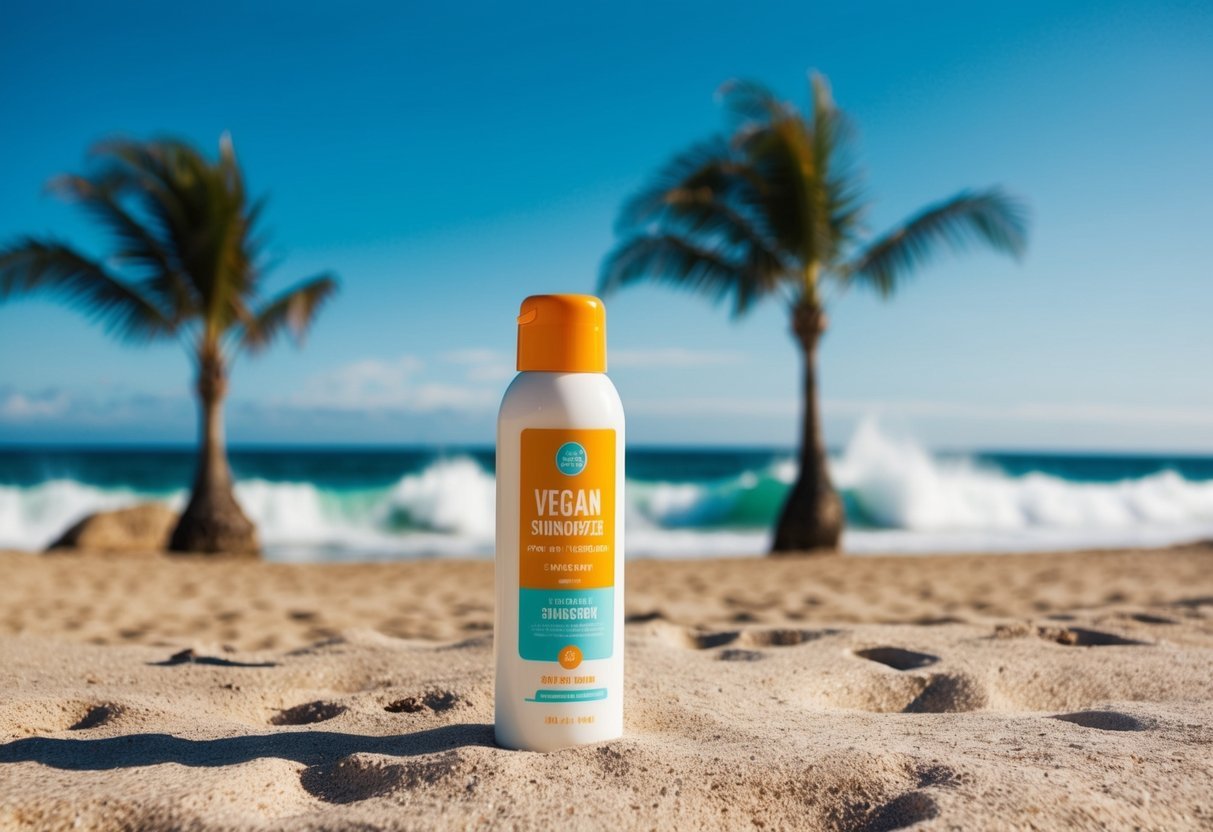
When picking out a vegan sunscreen, always look for broad spectrum protection. This means the product guards against both UVA and UVB rays.
UVA rays penetrate deep into our skin, causing premature aging and wrinkles. Meanwhile, UVB rays are responsible for those nasty sunburns we all dread.
A good vegan sunscreen should shield us from both types of rays. Make sure to check the label for the words “broad spectrum” or “full spectrum” to ensure you’re getting complete protection.
Some natural ingredients like zinc oxide and titanium dioxide offer excellent broad spectrum coverage. These mineral-based sunscreens are often gentler on our skin and the environment.
We also love finding vegan sunscreens that not only protect us but also nourish our skin. Look for products with added antioxidants or moisturizing ingredients for an extra boost of skin-loving goodness.
Remember, no matter how cloudy it is outside, those UV rays are still sneaking through. That’s why we always slather on our favorite broad spectrum vegan sunscreen before heading out.
2) SPF 30 or Higher
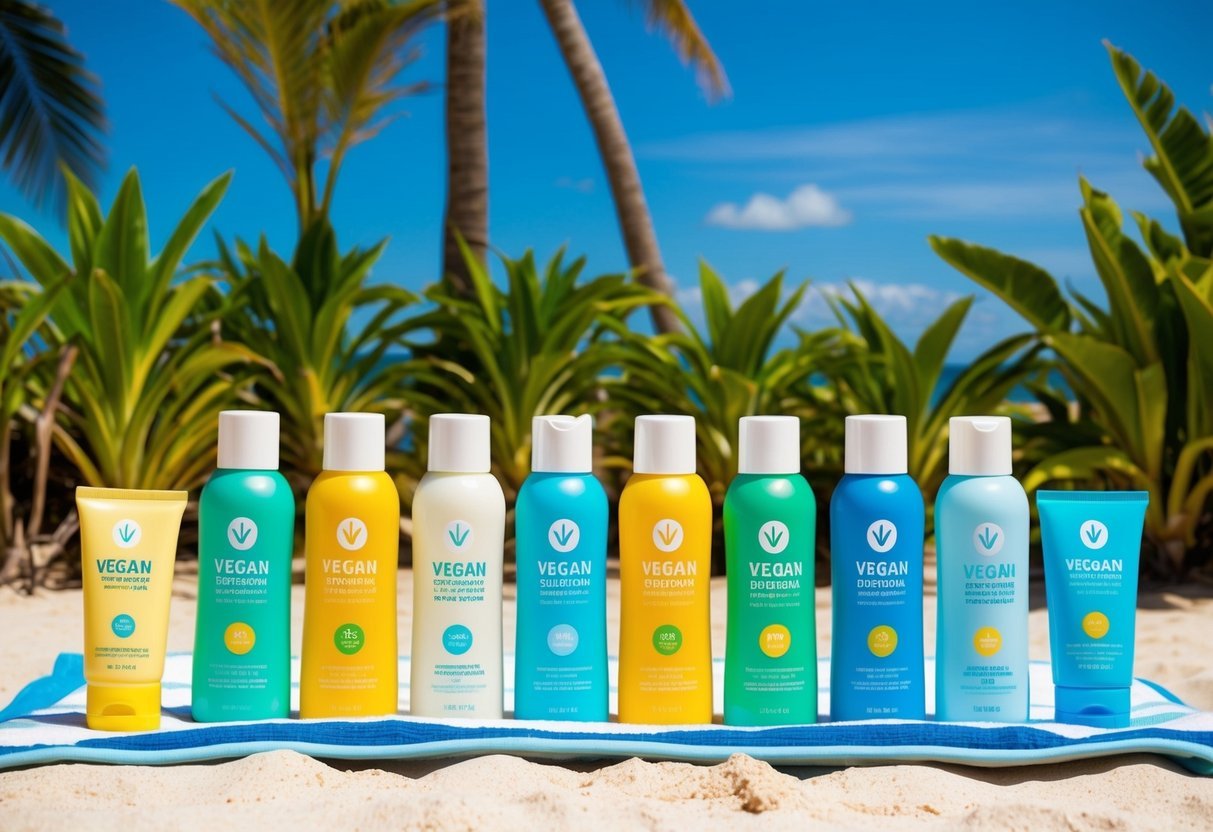
When picking a vegan sunscreen, always look for an SPF of at least 30. This level offers solid protection against harmful UV rays.
SPF 30 blocks about 97% of UVB rays, which is pretty impressive. It’s the minimum we’d recommend for everyday use.
For those spending lots of time outdoors, SPF 50 might be a better choice. But here’s a fun fact: the difference between SPF 30 and SPF 100 isn’t as big as you might think.
We’ve found that ultra-high SPFs don’t necessarily mean ultra-high protection. They often give a false sense of security.
Many vegan sunscreens we love come in SPF 30 formulations. These tend to feel lighter on the skin and blend in more easily.
Remember, reapplication is key no matter the SPF. Make sure to slather on more every couple of hours, especially after swimming or sweating.
3) Water-Resistant
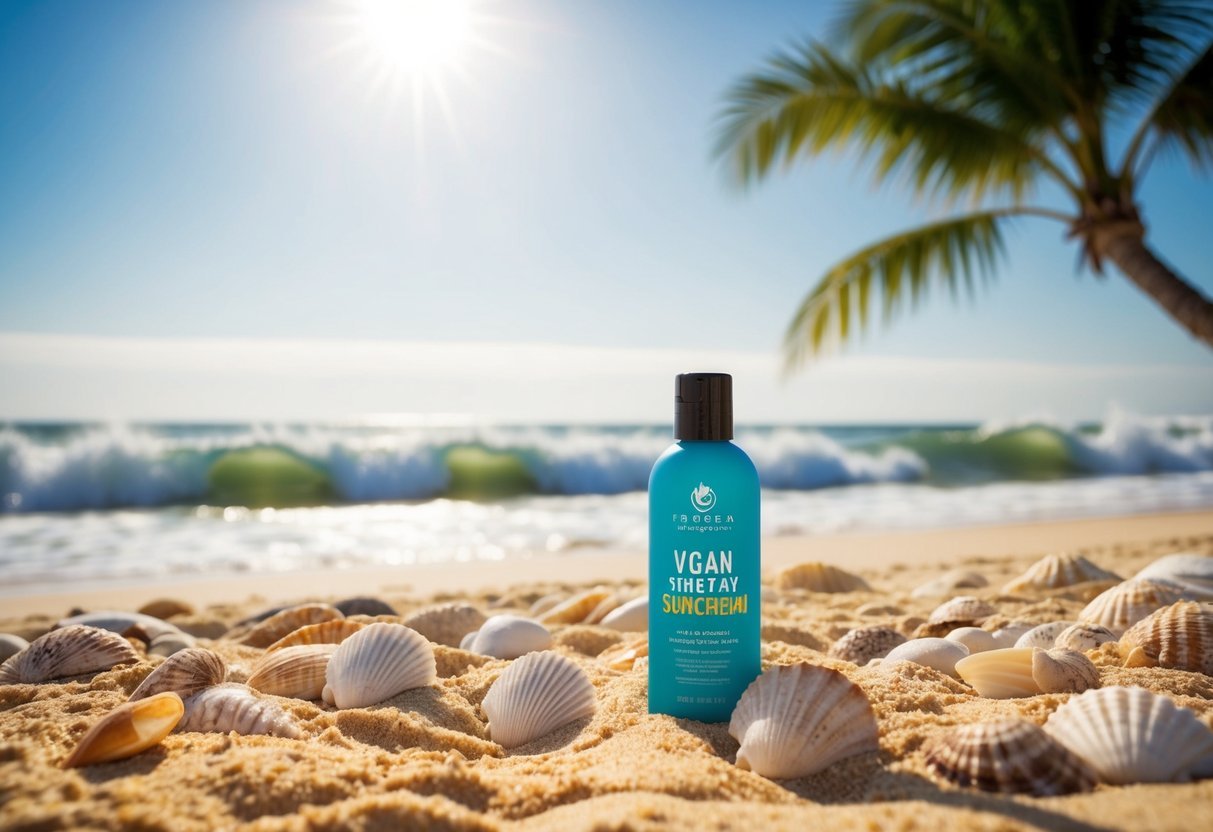
We know how important it is to stay protected when we’re out enjoying the sun, especially during water activities. That’s why water-resistant vegan sunscreens are a game-changer for us beach lovers and pool enthusiasts.
These nifty formulas are designed to cling to our skin even when we’re swimming or sweating. They typically last for 40 to 80 minutes in the water before we need to reapply.
Look for labels that clearly state “water-resistant” or “very water-resistant” on the bottle. It’s our cue that the sunscreen will stick around longer while we’re splashing about.
Some vegan brands use natural ingredients like plant waxes or oils to create that water-resistant barrier. These can be great options for those of us seeking more earth-friendly solutions.
Remember, even water-resistant sunscreens need to be reapplied regularly. We always set a timer to remind us when it’s time for another layer of protection.
4) Cruelty-Free Certification
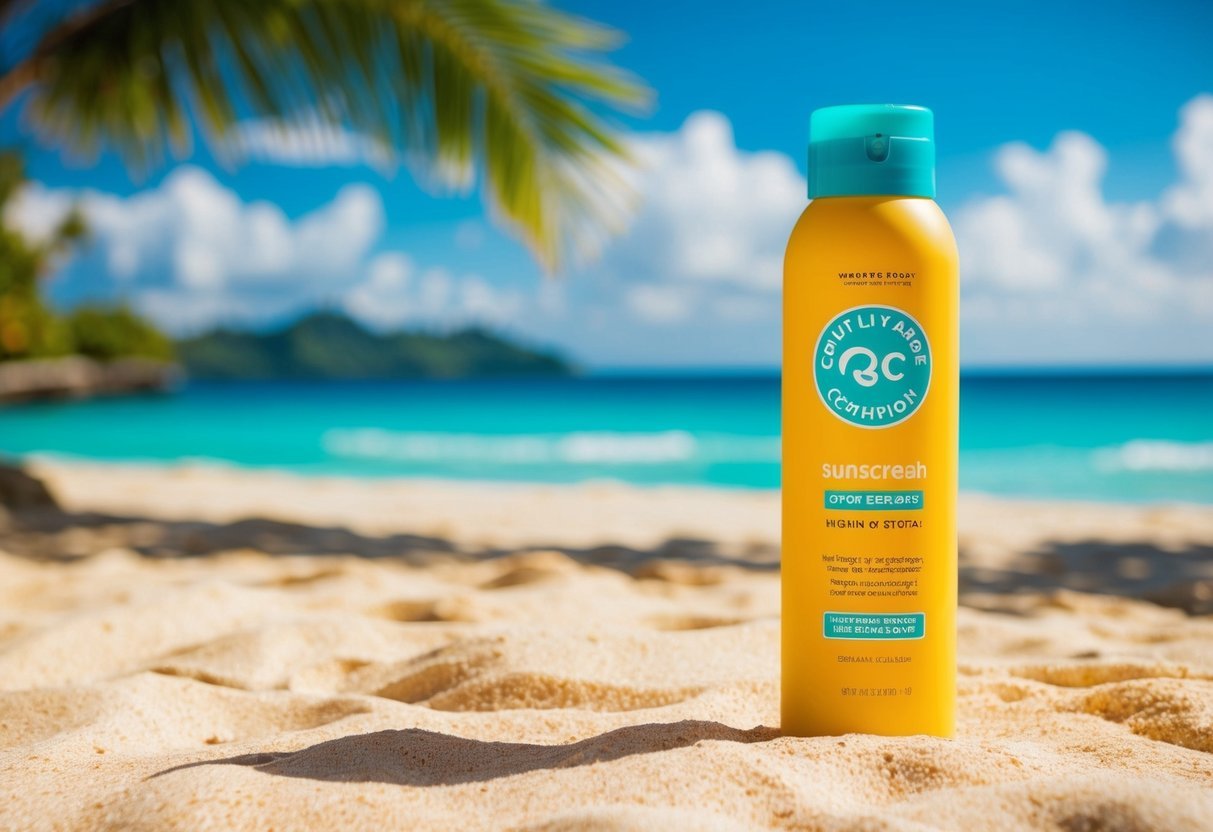
When picking a vegan sunscreen, always look for a cruelty-free certification. This seal of approval tells us the product wasn’t tested on animals.
Some common certifications to keep an eye out for include Leaping Bunny, PETA’s Beauty Without Bunnies, and Choose Cruelty Free. These organizations have strict standards for companies to meet.
It’s not just about the final product either. We want to make sure none of the ingredients were tested on animals at any stage of development.
Sometimes, brands might claim to be cruelty-free without official certification. In these cases, we dig a little deeper to verify their practices.
Remember, cruelty-free doesn’t automatically mean vegan. Some cruelty-free products might still contain animal-derived ingredients. We always double-check the ingredient list to be sure.
By choosing certified cruelty-free sunscreens, we’re supporting companies that prioritize ethical practices. It’s a simple way to make a positive impact with our purchasing decisions.
5) Organic Ingredients
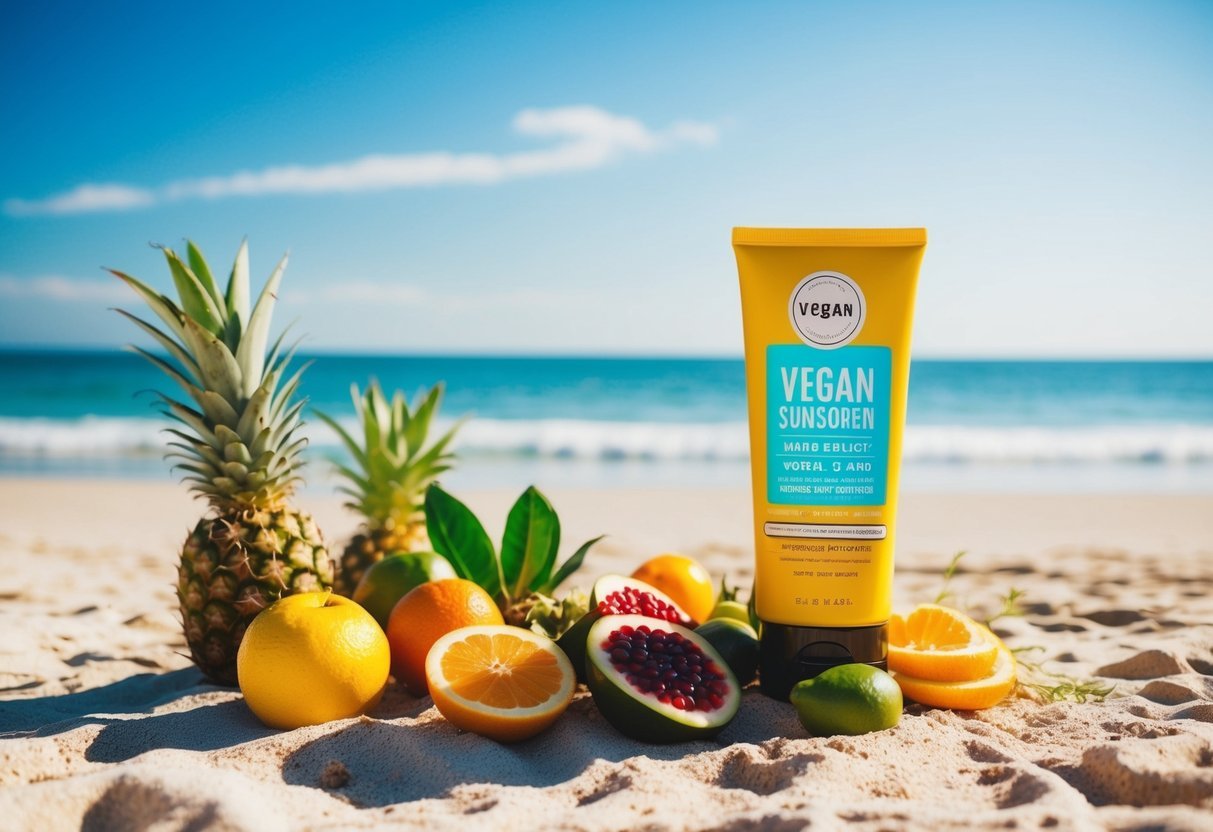
When hunting for a vegan sunscreen, we love to see organic ingredients on the label. These natural components are grown without synthetic pesticides or fertilizers, making them better for our skin and the environment.
Many organic sunscreens use plant-based oils and extracts. We’re talking about nourishing goodies like coconut oil, shea butter, and aloe vera. These can help moisturize our skin while protecting it from the sun’s rays.
Look for certifications like USDA Organic or COSMOS Organic on the packaging. These tell us that a product meets strict standards for organic ingredients. Some brands even go the extra mile with 70% or more organic content.
We’ve noticed that organic sunscreens often have a lighter feel on our skin. They tend to absorb quickly without leaving a greasy residue. Plus, they usually smell amazing – think subtle, natural scents instead of artificial fragrances.
Remember, organic doesn’t always mean 100% natural. But it’s a great step towards cleaner, more eco-friendly sun protection. We love knowing we’re putting pure ingredients on our skin while soaking up those rays.
6) Non-Greasy Formula
When picking a vegan sunscreen, always look for a non-greasy formula. Nobody wants to feel like they’ve slathered themselves in oil, right? A lightweight texture is key for comfortable daily wear.
We prefer sunscreens that absorb quickly into our skin. This way, we can apply makeup or head out the door without feeling sticky or shiny. Some plant-based options use natural ingredients that leave a silky-smooth finish.
It’s awesome when we find a vegan sunscreen that moisturizes without clogging pores. Many brands now offer oil-free formulas that work well for all skin types. These won’t leave us feeling greasy or cause breakouts.
We love sunscreens that feel like they’re barely there. A good non-greasy formula should provide protection without weighing us down. It’s a win-win when we can shield our skin from the sun and still feel fresh all day long.
7) Reef-Safe
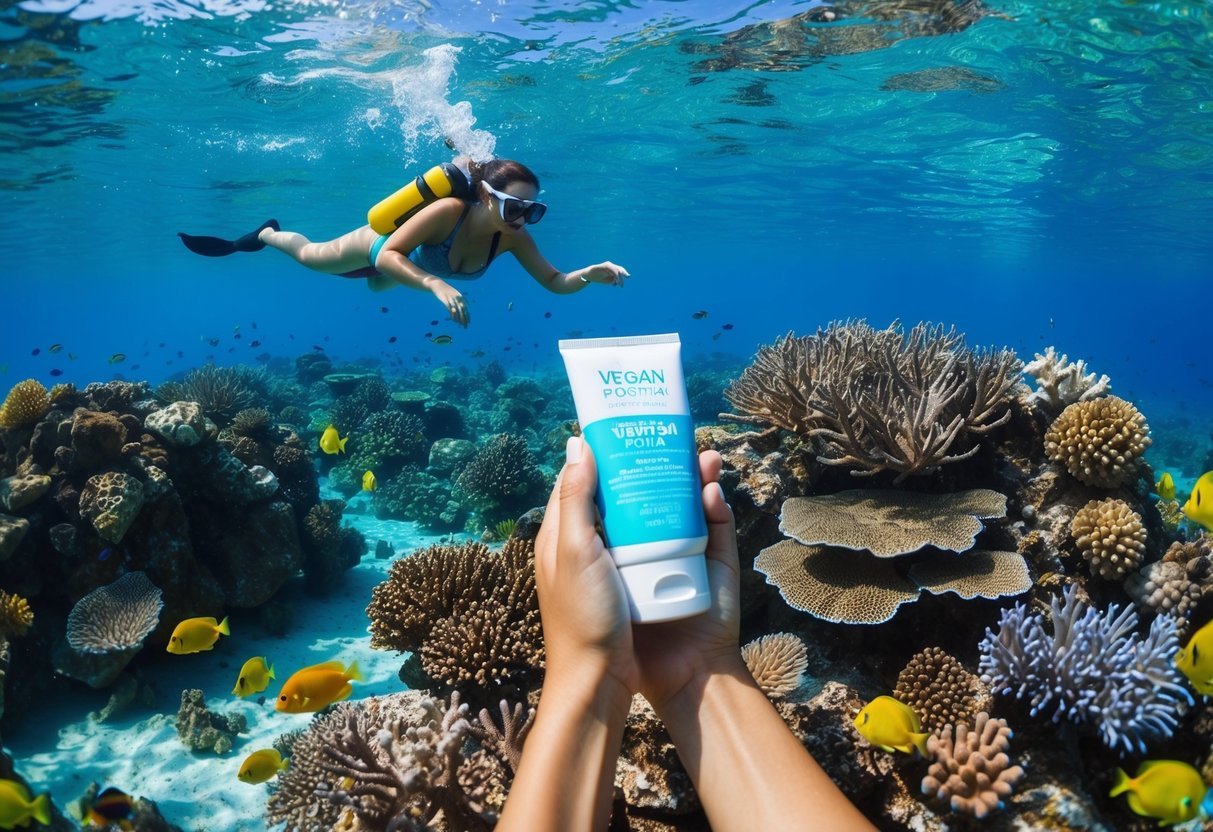
We love our oceans, so choosing a reef-safe sunscreen is a must. Many traditional sunscreens contain chemicals that harm coral reefs and marine life.
Look for vegan sunscreens that are explicitly labeled as reef-safe or reef-friendly. These products typically use mineral-based ingredients like zinc oxide or titanium dioxide.
Avoid sunscreens with oxybenzone and octinoxate. These common chemical filters are known to damage coral reefs. Instead, opt for natural, biodegradable ingredients that won’t harm underwater ecosystems.
We’re big fans of brands that prioritize both skin and ocean health. Some even donate a portion of their profits to marine conservation efforts.
Remember, reef-safe doesn’t always mean vegan. Double-check the ingredients to ensure no animal-derived components snuck in. With a little effort, we can protect our skin and the planet’s precious coral reefs at the same time.
Why Choose Vegan Sunscreens
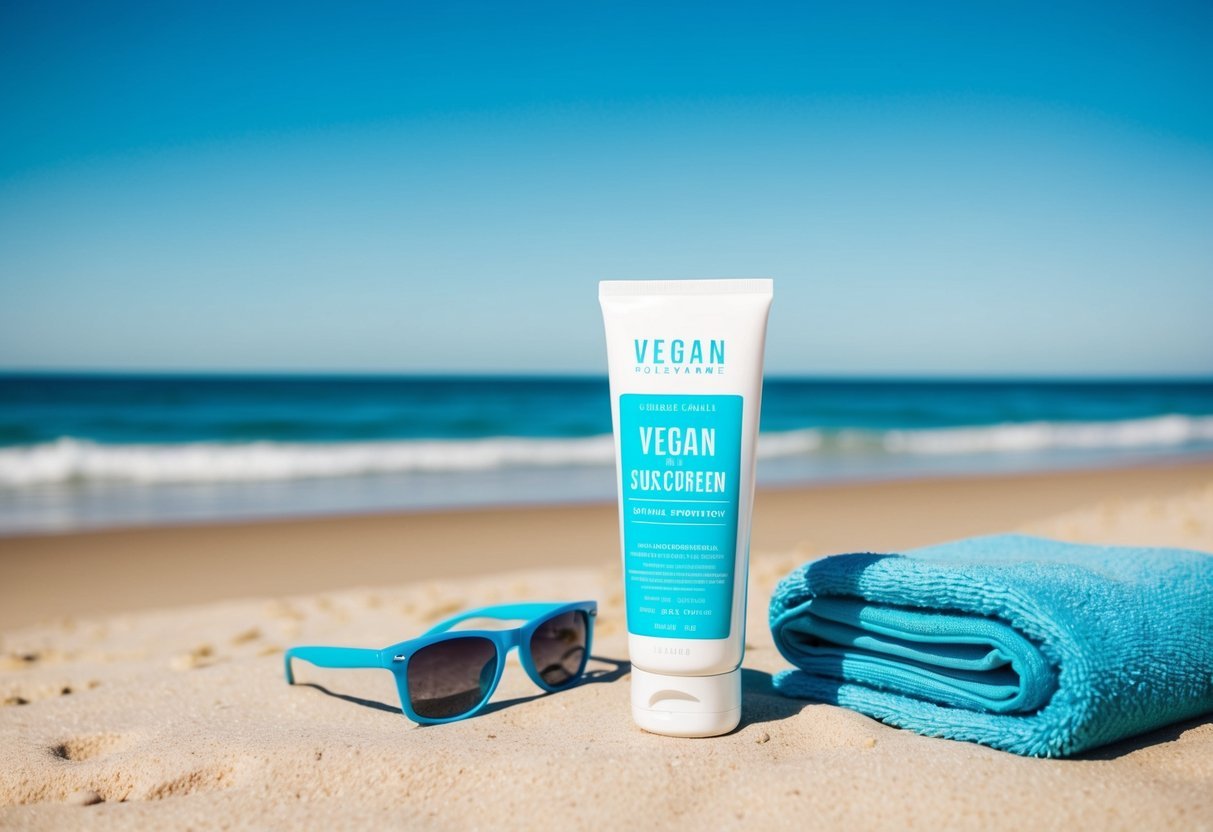
Vegan sunscreens offer ethical and eco-friendly protection for our skin. They align with our values while safeguarding the environment.
Ethical Considerations
We care about animal welfare, so vegan sunscreens are a no-brainer. These products are never tested on animals, giving us peace of mind. Plus, they’re free from animal-derived ingredients like beeswax or lanolin.
Vegan sunscreens often use plant-based alternatives that are just as effective. Think coconut oil, shea butter, and aloe vera. These natural goodies nourish our skin while shielding it from the sun.
By choosing vegan options, we support companies that prioritize ethical practices. It’s a small way to make a big difference in the beauty industry.
Environmental Impact
Vegan sunscreens are typically kinder to our oceans and reefs. Many contain minerals like zinc oxide or titanium dioxide instead of harmful chemicals.
These eco-friendly formulas wash off in the water without damaging marine life. Some brands even use biodegradable packaging to reduce plastic waste.
We love that vegan sunscreens often feature organic ingredients. This means fewer pesticides and synthetic chemicals end up in our ecosystems.
By picking vegan sunscreens, we’re protecting our skin and the planet at the same time. It’s a win-win for us and Mother Nature!
Key Ingredients to Look For
When selecting a vegan sunscreen, it’s crucial to pay attention to the ingredients list. We’ve identified two main categories of components that make for an effective and skin-friendly product.
Natural Sunblock Agents
Zinc oxide and titanium dioxide top our list of natural sunblock agents. These mineral-based ingredients create a physical barrier on the skin, reflecting harmful UV rays. We love that they’re gentle and suitable for sensitive skin types.
Non-nano versions of these minerals are even better. They don’t penetrate the skin, making them safer for us and the environment. Some brands also use plant-based oils with natural SPF properties, like red algae or carrot seed oil, to boost sun protection.
Skin-Friendly Additives
The best vegan sunscreens don’t just protect – they nourish too. We look for hydrating ingredients like hyaluronic acid and glycerin. These help keep our skin plump and moisturized while we’re out in the sun.
Antioxidants are another must-have. Vitamin E, green tea extract, and niacinamide fight free radicals and soothe sun-stressed skin. We’re also fans of calming additives like aloe vera and chamomile.
For a silky texture, keep an eye out for natural emollients. Shea butter, coconut oil, and jojoba oil blend seamlessly into the skin without leaving a greasy residue.
How to Read Labels Effectively
Reading sunscreen labels can be tricky, but it’s crucial for finding vegan-friendly options. We’ll explore how to identify certifications and spot potentially harmful ingredients.
Identifying Vegan Certifications
Look for trusted vegan certifications on sunscreen labels. The Vegan Society’s trademark is a reliable indicator. Some products may display a “Certified Vegan” logo or “100% Plant-Based” claim.
Don’t assume “cruelty-free” means vegan – it only refers to animal testing. Check for phrases like “contains no animal ingredients” or “suitable for vegans” on the packaging.
Remember, not all vegan sunscreens are certified. In these cases, we’ll need to examine the ingredient list closely.
Spotting Harmful Ingredients
Scan the ingredient list for animal-derived substances. Common non-vegan ingredients include:
- Beeswax (cera alba)
- Lanolin
- Carmine (cochineal)
- Shellac
Watch out for less obvious animal products like:
- Glycerin (can be plant or animal-derived)
- Stearic acid
- Cetyl alcohol
Be cautious of “natural” or “organic” claims. These don’t guarantee vegan status. We should also look for potentially harmful chemicals like oxybenzone or octinoxate, which can damage coral reefs.
Frequently Asked Questions
Choosing the right vegan sunscreen can be tricky, but we’re here to help! Let’s tackle some common questions about these skin-protecting products. It’s essential to look for sunscreens that are free from harmful chemicals often found in conventional products. Additionally, consider options that are cruelty-free and made from natural ingredients to ensure they align with your ethical values. Don’t forget, while you protect your skin from the sun, incorporating vegan face masks for all skin types can also enhance your skincare routine by providing hydration and nourishment.
What ingredients should I check for in a vegan sunscreen?
We always look for zinc oxide or titanium dioxide as the active ingredients. These mineral-based filters are great for sensitive skin and reef-safe too. Avoid oxybenzone, octinoxate, and other chemical filters that can harm marine life.
How can I tell if a sunscreen is truly cruelty-free?
We recommend checking for certifications like Leaping Bunny or PETA’s Beauty Without Bunnies logo. These trusted symbols guarantee the product and its ingredients weren’t tested on animals. It’s also worth researching the brand’s parent company to ensure they’re committed to cruelty-free practices.
Can a sunscreen be vegan and still have a high SPF?
Absolutely! We’ve found plenty of vegan sunscreens with SPF 30, 50, and even higher. Mineral-based formulas can be just as effective as traditional sunscreens in blocking harmful UV rays. Remember, SPF 30 or higher is key for proper protection.
What are some reputable brands of vegan sunscreen?
We love Sun Bum, Supergoop!, and Coola for their vegan-friendly options. Raw Elements and Badger also offer great organic formulas. These brands prioritize clean ingredients and eco-friendly packaging, which we really appreciate.
How does vegan sunscreen differ from regular sunscreen?
Vegan sunscreens skip animal-derived ingredients like beeswax, lanolin, or carmine. They often use plant-based alternatives and focus on natural, skin-loving ingredients. We find they’re gentler on sensitive skin and better for the environment too.
Are there any vegan sunscreens that are also water-resistant?
Yes! Many vegan sunscreens offer water resistance for up to 80 minutes. We’ve tried options from Thinksport and All Good that hold up well during sweaty workouts or beach days. Just remember to reapply after swimming or toweling off.

